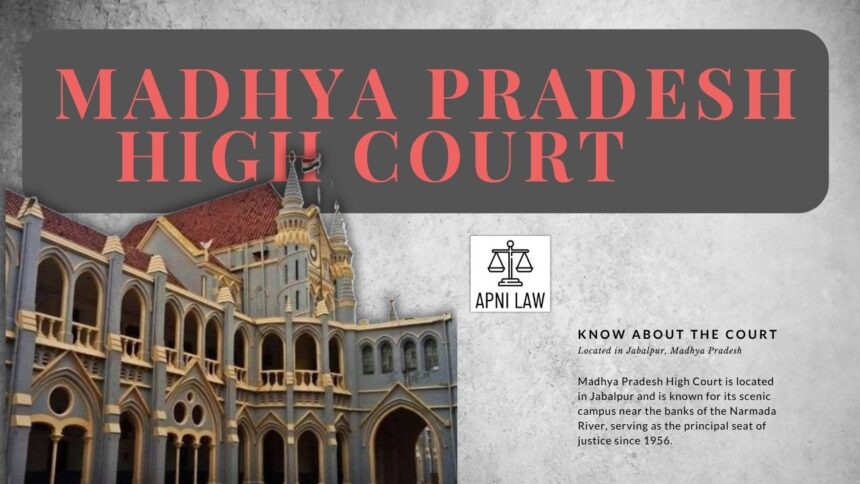Introduction
In the Madhya Pradesh High Court, a new judgment has clarified the rights of deceased’s cohabitant like a spouse to claim compensation under the Motor Vehicles Act. The case demonstrates that legal heirship is not the only path to compensation, dependency and the nature of the relationship also matter. The judgment is titled Smt Saroj v Rajendra Prasad Patel.
Facts of the Case
The appellant had been the sister-in-law of the deceased. After her husband’s death, she claimed that the deceased accepted her as his partner under local custom and that they lived openly together in a relationship akin to marriage. The village Sarpanch even issued a certificate confirming this. The appellant and her daughter claimed financial dependency on the deceased.
When the deceased died in a motor vehicle accident, the tribunal awarded compensation of ₹ 2,38,500 to the deceased’s father. The tribunal did not recognize the appellant’s status as a legal heir and dismissed her claim.
Dissatisfied, the appellant appealed to the High Court. The insurance company opposed her claim, arguing that because she had not been legally married to the deceased, she was not entitled to compensation.
The core legal question before the court was: Can a woman who is not the legal wife of the deceased, and whose daughter is not born of that deceased, still claim compensation under the Motor Vehicles Act?
What the Court Held
The High Court ruled in favor of the appellant. It held that the tribunal may grant compensation to a cohabitant who lived with the deceased in a marriage-like relationship, if certain conditions are met.
First, the court examined the scope of “legal representative” under the Motor Vehicles Act, 1988. It noted that a claim for compensation can be filed by legal representatives and by agents duly authorized by legal representatives. The court emphasized that legal representative is not limited to legal heirs but includes persons who can prove financial dependency.
The court relied on earlier jurisprudence (including N. Jayasree v. Cholamandalam MS General Insurance Co Ltd) to support a broader understanding of claims under the Act. It stressed that the emphasis should be on dependency rather than formal legal heirship.
Justice Himanshu Joshi, writing for the bench, stated that substantive justice requires recognition of partners who depended on the deceased. But he added that the cohabitant must establish three essential elements:
- A stable, long-term relationship with the deceased;
- Financial dependency on the deceased; and
- That their relationship had the character of marriage, even if not legally formalized.
Because the appellant had alleged facts to satisfy those elements (and had community recognition via the Sarpanch certificate), the High Court allowed her appeal. It set aside the tribunal’s original order and remanded the case for fresh consideration. The tribunal must reconsider both the appellant’s claim and the claim of the deceased’s father and pass a new compensation order within three months.
Implications
This judgment has substantial implications for motor accident claims in India. It expands the circle of eligible claimants beyond strictly legal heirs. It allows cohabitants, if they can prove dependency and a marriage-like relationship, to seek compensation for death caused by an accident.
The decision encourages tribunals to look beyond formal marital status and consider the realities of relationships and dependency when awarding compensation. It also reinforces that mere absence of legal marriage does not automatically exclude a claimant, provided the requisite factual matrix is proven.
In future claims, claimants in non-formalized partnerships may rely on this precedent to press their claims under the Motor Vehicles Act. Tribunals must now scrutinize the nature of the relationship and the claimant’s dependency, rather than mechanically reject claims for want of legal marriage.
For any specific query call at +91 – 8569843472
Conclusion
In Smt Saroj v. Rajendra Prasad Patel, the Madhya Pradesh High Court affirmed that a cohabitant living with the deceased in a marriage-like relationship may claim compensation, even without formal marriage. The court stressed the importance of proving a stable relationship, dependency, and marital character. This judgment broadens access to relief under the Motor Vehicles Act and underscores the law’s responsiveness to real human relationships over formal legal definitions.








